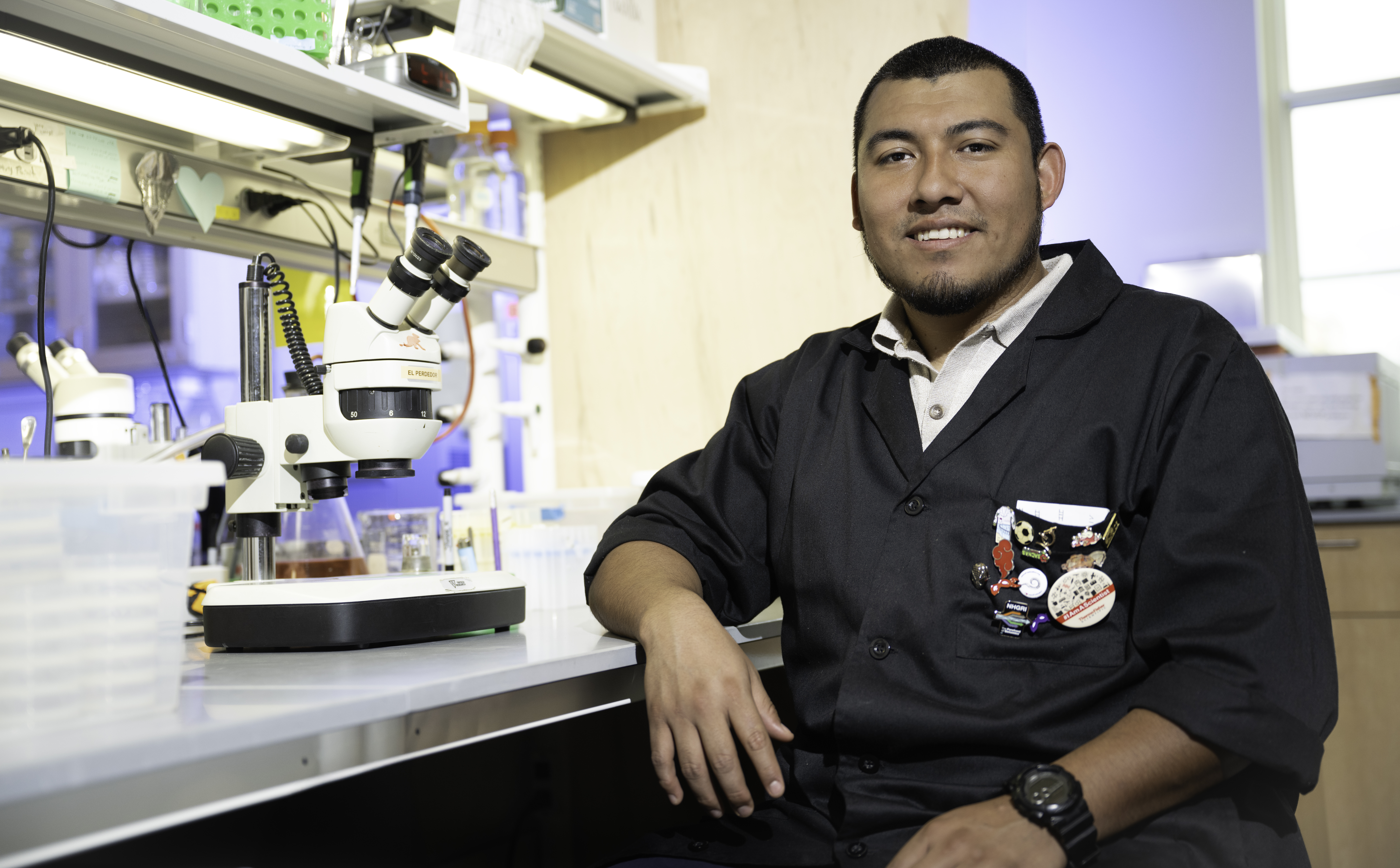The Texas Leadership Research Scholars Program, which debuted in Fall 2024, is a Texas Higher Education Coordinating Board research scholarship and leadership opportunity program for high-achieving graduate students with financial need.
UNT is among only nine public universities in the state selected to participate in the inaugural cohort of the program, which awards selected doctoral researchers a nearly $18,000 scholarship renewable for up to four years.
“This program is not only bringing financial support for these doctoral researchers to continue their education, but also giving them access to a peer network and mentoring that will help set them up for career success after they graduate,” says Brenda Barrio, UNT assistant vice president for research and innovation.
A total of six UNT students were named in the first cohort of Texas Leadership Research Scholars — Garrett Cayce in the College of Engineering; Araceli Herrera Mondragon, Celeste Ortega-Rodriguez and Jose Robledo in the College of Science; Christian Quintero in the College of Education; and Emma Wimberg in the College of Music.
Read Robledo’s story below and check back on the UNT Research website throughout Spring 2025 to learn more about other students in the inaugural group of Texas Leadership Research Scholars.
Exploring Stress Responses

Jose Robledo didn’t always consider working in science as a possibility for him.
“I didn’t think that my scientific interest could end up leading to a career,” he says.
After earning his bachelor’s in biology from West Texas A&M University, Robledo planned to go into physical therapy, but he had always been curious about the world and grew up with a love for all kinds of animals.
His fascination with plants and how they grew came from his parents, who are from Tamaulipas, Mexico, and worked as migrant farm workers after immigrating to the U.S.
When Robledo enrolled in UNT as a master’s student, he still planned to work in physical therapy. His plans changed after approaching UNT biological sciences professor Pamela Padilla for an opportunity to work in her lab as he began his doctoral studies in biology at UNT. Robledo says connecting with a mentor who was also Hispanic helped him make the decision.
“I wanted to find someone who I can share my culture with, who would probably be understanding of some of the challenges that I have coming from that kind of culture,” he says.
Robledo, who serves as the president of the UNT Society for the Advancement of Chicanos and Native Americans in Science, has been working in Padilla’s lab for the last eight years.
Now pursing his Ph.D., his research focuses on stress responses in the C. elegans worm to understand how diet influences genes and metabolism. His physical therapy background has helped him in that work, as he’s been able to capitalize on some of the same interests, such as diet.
“We use C. elegans as a model to understand hyperglycemia, so we’re trying to tie it back to all the molecular and metabolic changes that happen in type 2 diabetic patients,” he says.
Padilla says Robledo has been a tremendous asset to her lab and their field of research.
“Jose is an amazing, intelligent and hard-working Ph.D. student who has contributed to discoveries in the field of genetics and stress responses,” says Padilla, who serves as UNT’s vice president for research and innovation. “He is a talented scientist that demonstrates the energy, leadership skills and empathy to be a successful instructor and mentor to others.”
As a Texas Leadership Research Scholar, Robledo can focus on research instead of having to find additional employment to provide for his family.
This program also has provided him with leadership and networking opportunities, including being recommended for the inaugural President’s Student Leader Advisory Committee this academic year. Robledo’s goal is to be a mentor to others, just like Padilla has been to him.
Planning to earn his doctorate in Fall 2025, he wants to continue with this field of research, hoping it could possibly lead to clinical trials in humans.
“My goal hopefully is to explore basic scientific questions that can help uncover some translational research applications that I could use to feel like I have a real impact on human health.”